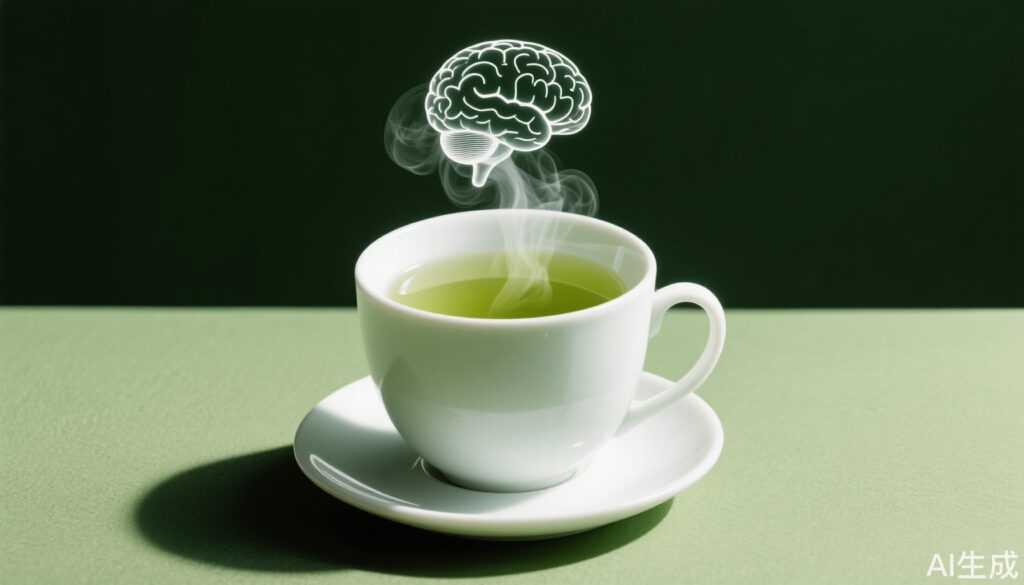Introduction: The Potent Power of Green Tea
Green tea has long been celebrated for its numerous health benefits, ranging from cardiovascular support to antioxidant properties. A recent study published in 2025 in the journal npj Food Science, a subsidiary of Nature, highlights a particularly exciting benefit: the protective effects of green tea against brain white matter lesions, which are closely linked to cognitive decline and dementia. This revelation underscores how simple dietary choices can have profound impacts on neurological health.
Scientific and Clinical Evidence: What the Data Tell Us
White matter lesions in the brain are often considered early markers of cerebral small vessel disease—a condition associated with cognitive impairment and an increased risk of dementia. Researchers in the 2025 study analyzed data from a comprehensive cohort of participants who regularly consumed green tea. Their findings demonstrated that individuals who drank three or more cups daily exhibited significantly fewer white matter lesions compared to those who consumed less or none.
This protective effect is attributed to the rich content of catechins, a type of polyphenol found in green tea. Catechins have been shown to offer anti-inflammatory and neuroprotective benefits, enhancing brain health and reducing oxidative damage. Other studies corroborate these findings, linking green tea consumption with improved memory, attention, and overall cognitive function.
Beyond Brain Health: Other Benefits of Green Tea
Green tea’s benefits extend far beyond the brain:
1. **Cardiovascular Health:** Regular consumption is associated with improved cholesterol profiles and reduced risk of heart disease.
2. **Weight Management:** Green tea boosts metabolism and aids in fat oxidation, supporting weight loss efforts.
3. **Cancer Prevention:** The antioxidants in green tea may help reduce the risk of certain cancers by neutralizing free radicals.
4. **Skin Health:** Its anti-inflammatory properties can alleviate conditions such as acne and promote skin elasticity.
Misconceptions About Green Tea
While green tea is beneficial, misconceptions abound. For instance, some believe that excessively high consumption guarantees better health outcomes, which can lead to adverse effects such as insomnia due to caffeine content. Moderation is key.
Practical Tips for Incorporating Green Tea
For optimal benefits, aim to drink 2–3 cups of green tea daily. Brew it fresh to preserve its catechins and avoid adding excess sugar. Pairing green tea with a healthy diet amplifies its effects.
Expert Recommendations
Dr. Emily Carter, a nutritionist specializing in neurodegenerative diseases, notes, “Green tea is a simple, accessible way to support brain health. Its bioactive compounds hold promise in reducing the burden of cognitive aging.” She recommends incorporating green tea as part of a balanced lifestyle.
Conclusion
The findings from the npj Food Science study underscore the profound impact of green tea on brain health. With its ability to reduce white matter lesions and support cognitive function, green tea represents a valuable addition to preventive health strategies. Further research continues to explore its full potential, but the current evidence is clear: green tea is not just a beverage but a tool for better health.
References
– npj Food Science, 2025 study on green tea and white matter lesions.
– Additional supporting studies from PubMed indexed journals.



